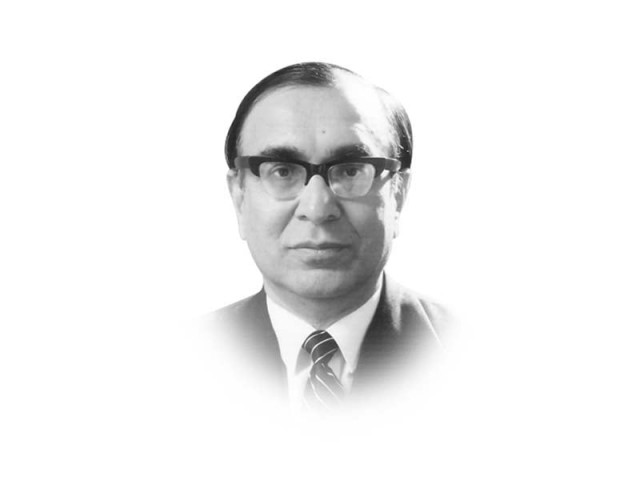Where time stands still
Imparting a fresh momentum to the India-Pakistan reconciliation process is a challenging task.

Engagement is an imperative even for India despite occasional posturing by some opinion-makers and op-ed writers that their shining state can simply dispense with Pakistan. Such posturing in the context of countries with such a long land frontier and an undetermined maritime boundary as well as a heavy baggage of unresolved issues is fraught with dangers. That India and Pakistan possess notable nuclear arsenals and are forever improving delivery systems for them add to these dangers. In my own reckoning, even more important than the risks is the fact that India and Pakistan have now within their grasp a huge peace dividend. History has brought them inexorably to a point where they can achieve great things for their peoples and for the entire region if only they summon the political will for a rapprochement.
A full nine months after participating in a Track II event in Dubai, I joined another conclave on October 16-17 at Bangkok in which the Pakistani side was put together by the highly innovative Sherry Rehman. As the Joint Communique put it “leading opinion-makers from India and Pakistan including retired foreign office veterans, civil society actors, academics and political leaders” engaged in a stimulating dialogue and produced a forward-looking document of suggestions, though not without glitches en route.
Indeed, there is a certain predictability about these conversations. Pakistani participants are generally individualistic and ready to cast aside official positions. The Indian interlocutors are brilliant but prefer to sail close to the coast of government policy. At Bangkok, some Indian interventions were deliberately tough. One, there is hardly any chance of Manmohan Singh visiting Pakistan despite the recent renewal of the seven-year old invitation by Pakistan’s foreign minister and commerce minister. Two, there cannot be a Siachen agreement without authentication of present positions as demanded by the Indian Army. Three, India is no longer pushed about Safta as it already has in place bilateral and trilateral trading arrangements with Saarc states. Fourth, India is more focused on the ‘Southern Silk Route’. Fifth, India has contracted security provisions in the new pact with Afghanistan not only because Kabul wanted them but also because of the desire of the United States and Nato. Sixth, New Delhi’s dialogue with Kashmiri leaders is progressing extremely well.
Notwithstanding these formulations, the Joint Communique has many constructive recommendations. A rough and ready list would include the following: reach agreement on Siachen, resolve Sir Creek at the next round, strengthen existing CBMs and expand them, pursue a dialogue — official and back channel — on Kashmir, resurrect a joint counterterrorism mechanism, establish a joint working group on Afghanistan to discuss mutual security concerns, create conditions for an Afghan-driven national reconciliation, implement the TAPI agreement, facilitate trade with a liberal visa regime, improve infrastructure for movement of goods and seek greater cooperation in the energy sector, including wind and solar energy.
Imparting a fresh momentum to the India-Pakistan reconciliation process is a challenging task. Pakistan is deeply embroiled in the effort to contain violence linked with the war on terrorism and in reversing economic decline. In India, Manmohan Singh now has a weaker hand than ever before to pursue any meaningful initiative on contentious issues. The mesmerising national narrative of shining India has been overshadowed by a new narrative of corruption and the populist struggle against it. Nevertheless, if time is not to sit still, both sides will have to devise imaginative approaches to all outstanding problems and summon requisite statesmanship to ensure that new issues like water rights and rivalry over influence in Afghanistan do not become zero-sum games.
Published in The Express Tribune, October 24th, 2011.














COMMENTS
Comments are moderated and generally will be posted if they are on-topic and not abusive.
For more information, please see our Comments FAQ